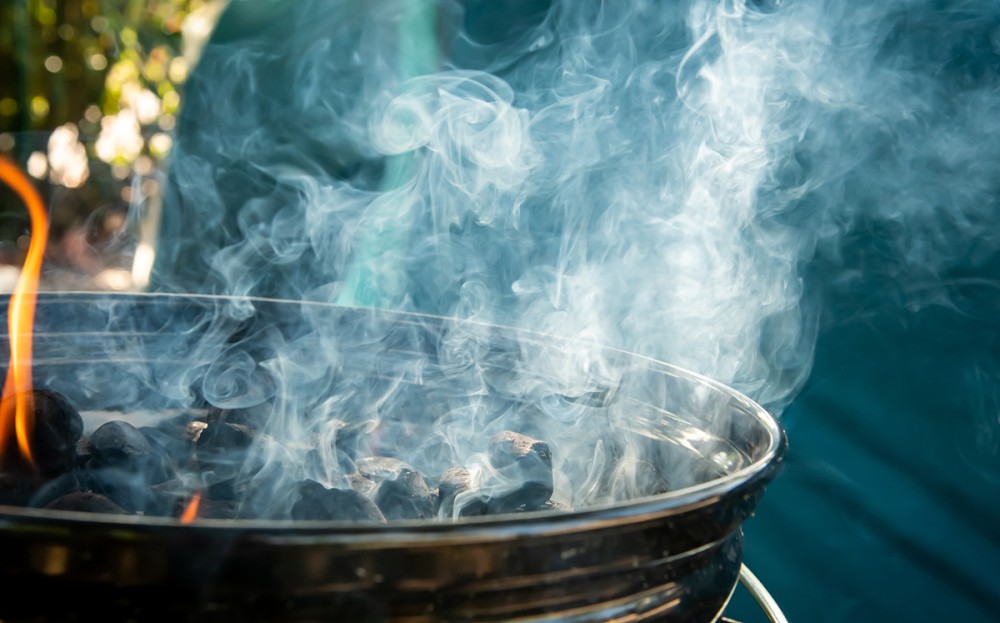
Around the beginning of May, signs start going up around my neighborhood advertising the Hava NaGrilla Smoke BBQ Festival, the country’s largest charity kosher barbecue festival. Held at the local synagogue, Temple Beth Hillel-Beth El, the festival gathers a few hundred people from across the region. The signs are unavoidable, and they advertise the festival with the word Smoke in large font. Truthfully, that’s all I need: smoke.
I am attracted to smoke. Especially smoke that has wrapped itself around a piece of meat. Add that smoke to a clever pun on a Hebrew folk song, throw in an opportunity to do some interfaith community building, multiply that by the fact that I have never been to a kosher barbecue festival, and compound it with the news that it was going to have a mechanical bull—I knew that my Sunday afternoon in June was booked.
In a very literal way, a love of smoke is imprinted into our DNA. In his book Catching Fire, primatologist Richard Wrangham argues that the human evolutionary jump to becoming big-brained mammals with small intestinal tracts is due to our unique ability among the animal kingdom to harness fire for cooking. The ability to apply fire to food has allowed us to easily consume more calorically dense food, thus feeding energy to our brains. Cooked food is softer and easier to digest than raw food, so rather than having to spend the better part of our days chewing, we can eat three squares in a few minutes. Our evolution, according to Wrangham, smells like smoke.





